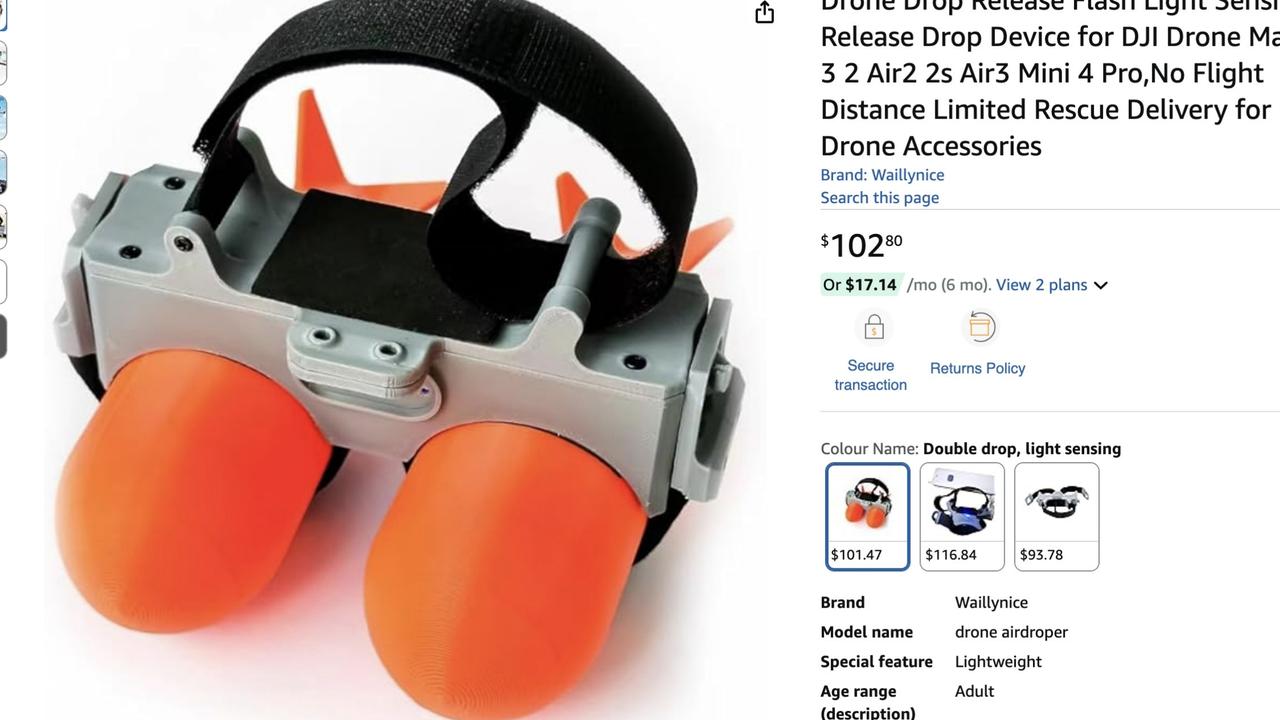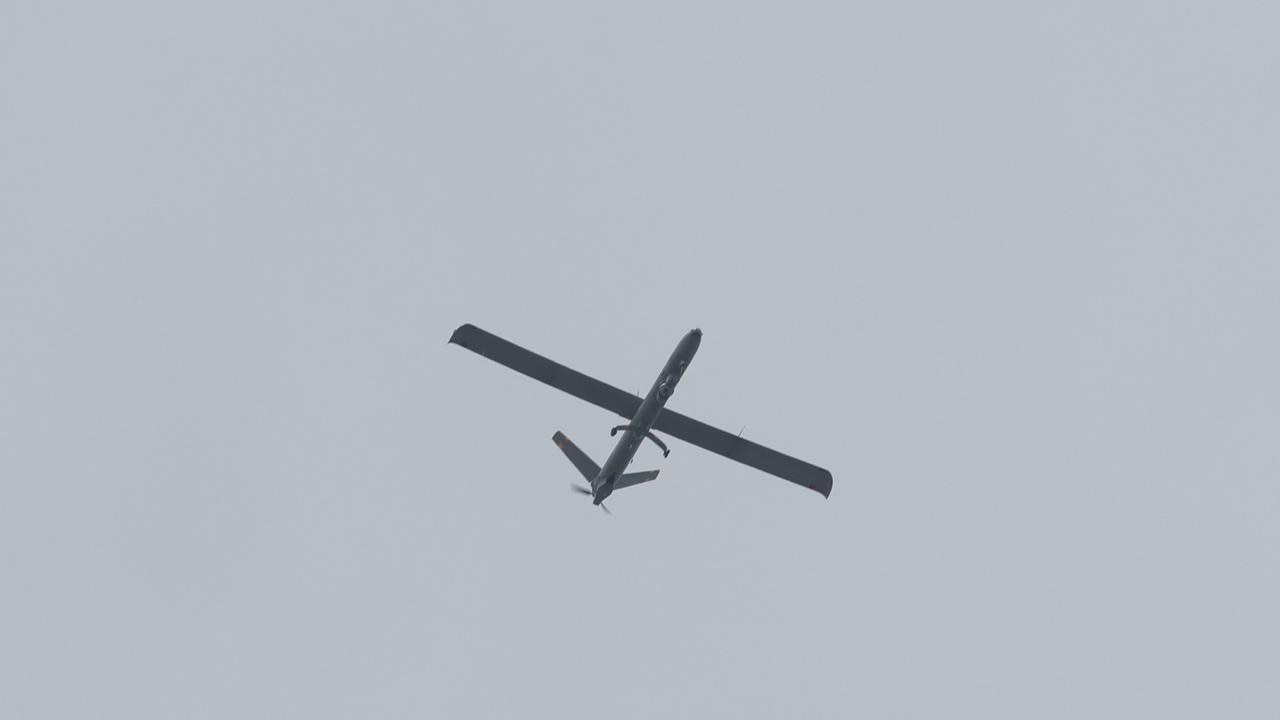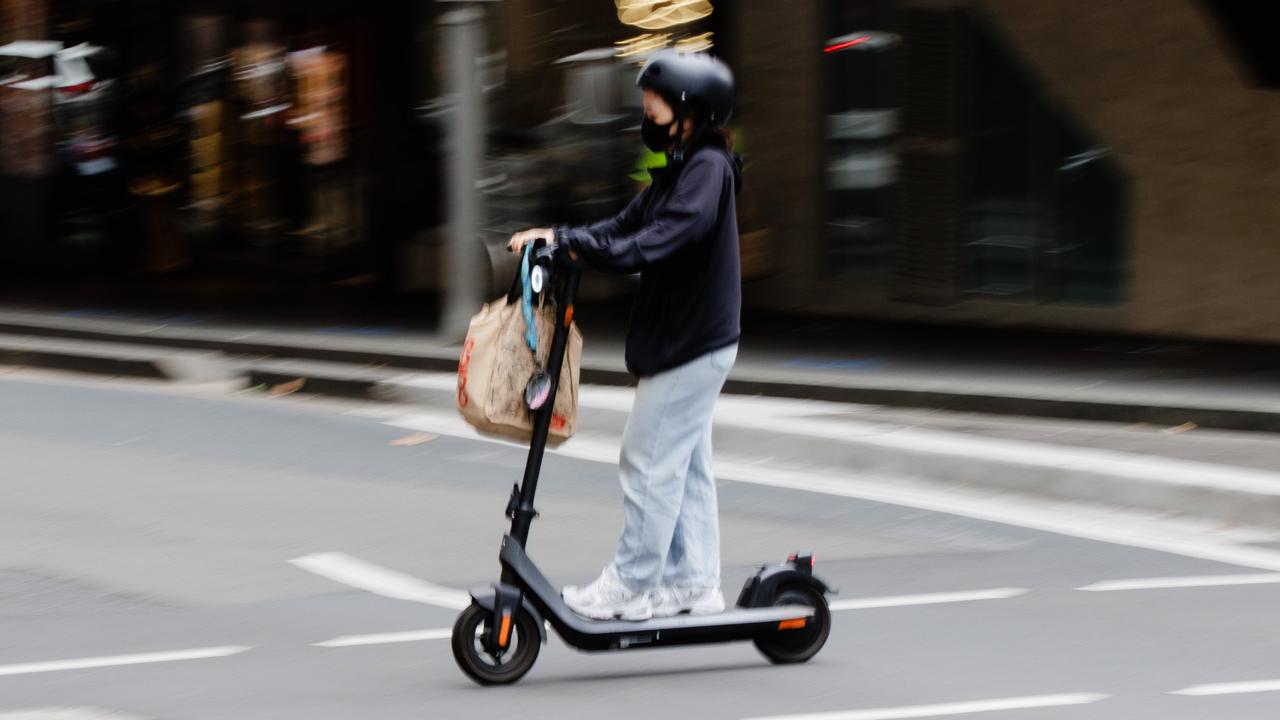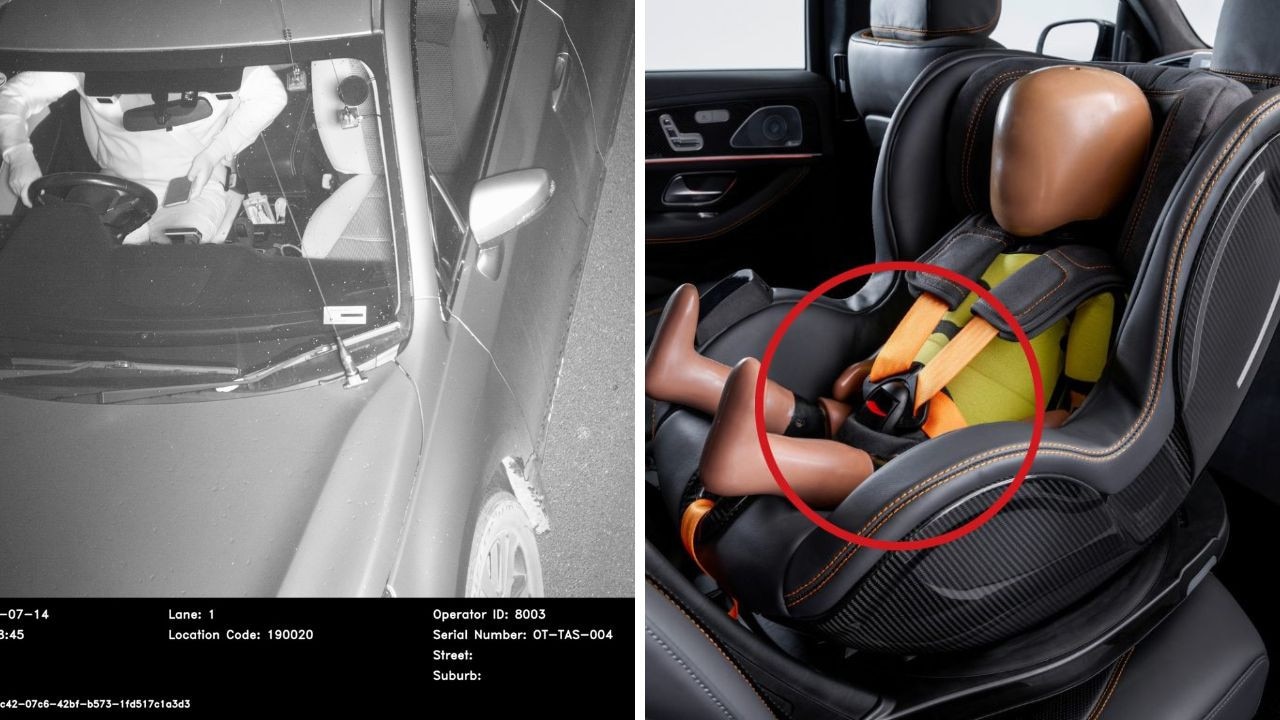‘Huge threat’: Fears over common Temu buy
Online marketplaces like Temu and Amazon are selling gadgets that can be weaponised. Experts say the threat is real and rising.

Motoring
Don't miss out on the headlines from Motoring. Followed categories will be added to My News.
Online marketplaces such as Temu, Amazon, AliExpress are selling gadgets that can be weaponised and experts say the threat is real, rising and barely policed.
The revelations follow News Corp Australia last month lifting the lid on cheap Chinese auto parts flooding Aussie driveways through budget shopping sites like Temu.
While drones have been gaining popularity over the last several years, University of New South Wales senior lecturer in aviation Dr Oleksandra Molloy said it was important to recognise drones had become an “emerging threat”.
“I believe it is important to recognise that a drone has become an emerging threat, that combined with explosive attached to it or its misuse may cause concerns for public safety and endanger national security and critical infrastructure,” she said.
Search “drone accessories” on any of these platforms and you’ll find hundreds of options, everything from spare propellers to camera mounts.
But hidden among the accessories are items that mimic military equipment.
MORE:‘Extreme risk’: Temu’s latest move slammed

MORE:‘Direct threat’: Temu hits back over ‘fake’ claims
Everything from high-powered antennas, carrying payload devices, thermal cameras to long-range tether systems and AI modules – many of the products identical to parts used in the war in Ukraine.
“Online marketplaces make it easy to bypass traditional export controls, allowing individuals or groups in Australia to obtain parts like high-resolution thermal cameras, long-range antennas, or powerful motors that can be used to assemble weapon-capable drones,” Dr Molloy said.
International security and intelligence expert John Blaxland said the situation is “not surprising” given the dual-use nature of drone technology.
“This is a dual use domain where many innocuous and legitimate purchases take place,” he said.

“It’s devilishly difficult to regulate and police in this space, where minor tweaks turn something built for commercial purposes into a weapon of war.”
Among the products identified is a drone release mechanism available on Amazon for approximately $102, featuring imagery of simulated bombs.
Another product is a portable FPV ground control station listed on AliExpress for around $17,000.
The product offers advanced control capabilities.
Red Ballon, a US-based embedded security firm conducted an investigation which revealed that low-cost add-ons for commercial quadcopters are readily available on Chinese shopping platforms.
Red Balloon CEO Ang Cui said he became quite unsettled about how easy it was for anyone to purchase a drone accessory that could be weaponised.
“The more we looked at this and started to see the big picture, the more my heart sank, because these are toys that are really amazing at killing people,” he said.

The Red Balloon investigation found that some of these accessories have been used in the Russia-Ukraine conflict, including AI drone guidance modules capable of identifying targets and fibre optic tethers that resist signal jamming.
UNSW Canberra Senior Lecturer Dr Oleksandra Molloy is concerned, warning that these products can be easily sourced online and repurposed for surveillance or attacks.
“Using online marketplaces make it easy to bypass traditional export controls, allowing individuals or groups in Australia to obtain parts like high-resolution thermal cameras, long-range antennas, or powerful motors that can be used to assemble weapon-capable drones,” she said.
Molloy added that many “commercial off-the-shelf drone” components can be easily adapted for military-style applications.
For example, in warzones, including Ukraine, “modified drones have been used to drop grenades, deliver payloads, and act as kamikaze drones.”
Even terror groups like ISIS have used commercial drones in Iraq and Syria, Dr Molloy said, and one alarming case in the US last year saw a Tennessee man arrested for planning to bomb a power grid using an explosive-laden drone.

“The low cost and availability of parts have made such repurposing increasingly common in asymmetric warfare,” she said.
International security and intelligence expert John Blaxland said the accessibility of these components is forcing national security officials to “rethink the nature of the challenge to their domains.”
Blaxland believes authorities are improving but “they’re starting from a low base”.
Adding to the risk, Dr Molloy explained that Australia lags behind countries like the US in imposing “country-of-origin-bans”, laws that prevent government agencies from using drones or parts from high-risk countries, such as China.
“The so-called country-of-origin bans are needed to ensure that drone or drone parts manufacturers do not send data related to critical Australian infrastructure and other important data back to their country,” she said.
The Defence and Strategic Goods List sets limits on military-grade exports however Dr Molloy said it needs to be amended to prevent commercial components being abused domestically.
“It is important to consider that these items may be used not for ‘the good’. Hence, stricter laws and legislations, as well as enforcement are needed for this emerging threat,” she said.
Blaxland said the “problem is not going away” and will “likely become more acute”.
“Now the challenge isn’t just monitoring imports but responding to local manufacturing with the help of 3D printing and the cannibalisation of other technologies,” he said.
Originally published as ‘Huge threat’: Fears over common Temu buy






